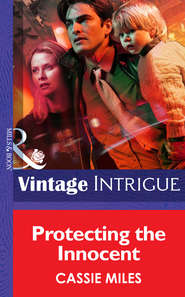По всем вопросам обращайтесь на: info@litportal.ru
(©) 2003-2025.
✖
Christmas Crime in Colorado
Автор
Год написания книги
2018
Настройки чтения
Размер шрифта
Высота строк
Поля
“Sally?”
Brooke entered the living room where the sloped ceiling peaked at the top of the A. She stopped short. Denim-clad legs and bare feet dangled above her head. Sally hung by her neck from a rope.
Brooke stumbled backward, banging into the sofa. Her gut clenched, and she doubled over. This isn’t happening. This can’t be happening.
It was only an illusion—her mind had to be playing tricks on her. Her anger at Sally had somehow caused this waking nightmare.
She didn’t want Sally dead, only gone from her house. Brooke forced herself to breathe slowly, the way her therapist had shown her as a way to control her fears. Slowly, inhale and exhale. She grounded herself. Then, she looked up.
Brooke’s gaze slid down the rope to Sally, who wore a white shirt, jeans and Brooke’s new down vest. On her pale wrist was the delicate Cartier watch Brooke’s father had given her when she graduated from college. She couldn’t see Sally’s face from where she was—her long, auburn hair spilled forward.
A scream clawed up the back of Brooke’s throat, but she held back. Control. I need to control my mind, control my fear. But how could she? Inside her head, rational thought tumbled into an incoherent whirl. She couldn’t make sense of this horror, feeling like she’d stepped onto a movie set where the director would yell “Cut,” and Sally would be fine. Yet she still hung there. Dead weight.
Maybe not dead. Not yet. Though unconscious, Sally might still be alive. The thought spurred Brooke into action. She leapt forward, wrapping her arms around Sally’s legs, trying to boost her up. Her bare feet were icecold. Her body twisted and swung. With a horrible thud, her back hit the wall below the railing.
This wasn’t working; Brooke needed help. In the kitchen, she grabbed her cell phone from her backpack and called 911. While waiting for an answer, she raced back to the front room and climbed the open staircase to the balcony.
When the 911 operator answered, Brooke blurted out, “An ambulance. My roommate. She tried to hang herself.”
“Ma’am, I need your location.”
She rattled off the address as she stared at the knot in the thick, heavy braided rope. She tugged at the loose end that coiled by her feet, then clawed at the tangled snarl looped around the railing. With Sally’s weight pulling the rope taut, there was no way she could untie the knot.
“Stay on the line,” the operator said. “Tell me what you’re doing.”
“The rope,” Brooke said. “I have to cut the rope.”
“An ambulance is on the way. Is your roommate conscious? Is she—”
“No.” She went down the staircase, her thick-soled hiking boots jolting her legs with each step. “I know CPR. If I can get her down, I can help her.”
In the kitchen, she pulled a butcher knife from the wood block near the sink. It would take forever to saw through that thick rope with a blade this flimsy. She needed something heavier.
Outside the kitchen door under the eaves was a waisthigh box that held a cord of wood for the fireplace and an ax. She dropped her cell phone on the table and hurried out the back door. Her hands trembled as she hefted the ax onto her shoulder.
Panic magnified her senses. The light above the back door shone with an intense silvery luster—a contrast to the pitch-black shadows of night. Over the rush of her own breathing, she heard a rustling in the branches followed by the crunch of footsteps on the snow. Turning toward the sound, she peered into a thick chokecherry bush that rose higher than the top of her head. “Is someone there?” she asked, her voice unsteady with fear.
The lights from the house reflected in a pair of eyes. No more than fifteen feet away, they stared at her through a bare thicket, then blinked and were gone.
Sheer terror washed over her. Had she actually seen something? Those eyes didn’t even look human.
More loudly, she demanded, “Who’s there?”
The wind blew, and the shadows shifted. She heard no other sound, saw nothing. She had no time to search. Her focus came back to a single purpose: Get Sally down.
Carrying the ax, she ran back into the house, closed the door and locked it behind her. Unable to forget those weirdly shining eyes, she moved cautiously through the galley-style kitchen. Her rational mind was clamoring to be heard over the terror.
Hyperaware of every sound and every shadow, Brooke edged into the front room. The plain, simple furniture didn’t offer many hiding places. She scanned the patterned blue sofas and the rocking chairs by the fireplace. She was dimly aware of a terrible smell, a smell that said there was no rush to get Sally down because she was already gone.
And then she saw him. Silhouetted against the sliding glass doors, he darted across the deck at the front of the house. Then he was gone.
Her pulse hammered. Her blood rushed, and she felt dizzy.
Outside the sliding glass doors, the outline of a man took shape again. Her eyes narrowed in a squint, but she couldn’t see him clearly. The lines of his shoulders shifted like a mirage.
Illusion or reality? Either she was being threatened by an intruder—a killer?—or she’d lost her mind.
The wind blew, and the glass trembled. The man reached for the door handle. She prayed the doors were locked. No such luck. The glass inched open.
“Stay back!” She stepped forward and away from Sally’s dangling legs. Brooke swung the ax in a wide arc. “Don’t come in here!”
She heard a hissing noise. The sound of breathing? He was gasping like the flatlanders who weren’t accustomed to the altitude. He was someone who had come from far away.
Her ex-husband.
That can’t be! I’ve left that part of my life behind. Thomas wouldn’t come here. He wouldn’t dare.
“Show yourself!” she yelled at the man. There was no way she could fight a shadow or a nightmare illusion. If she saw him, she could fight back. Damn it, she had an ax. She wasn’t helpless.
Unless he has a gun.
She crept forward, holding the ax at the ready. The handle slipped in her sweaty palms. She tightened her grip.
A face pressed up against the window. The features were unclear. All she could really see were the eyes—hate-filled eyes glaring into her soul.
No time to think. No point in screaming. She dropped the ax, pivoted and ran. She’d heard his gasps. He was already out of breath. She might be able to outdistance him.
Racing through the kitchen, she glanced at her cell phone on the table. Where the hell was the ambulance? The police? She flipped the lock on the door, grabbed the butcher knife off the counter and dove into the night.
Her hiking boots slowed her down, but the heavy soles had good traction in the packed snow. She ran down the driveway, passing her Jeep. Damn it! Why didn’t I grab my car keys instead of a butcher knife? She wasn’t thinking clearly. Her perceptions were all wrong. That one mistake—knife instead of car keys—could get her killed.
She saw headlights on the road leading up the steep cliff. The car turned at her driveway. It had to be the police. But why weren’t they using the siren?
A bronze SUV pulled in and parked. A tall man in a brown leather bomber jacket and jeans stepped out of the driver’s side.
She whirled and peered back at the well-lit house. The intruder was nowhere in sight. Had she even seen him? She could have imagined him, creating a vision that matched her fears. It wouldn’t be the first time. She hated the fact that she couldn’t always trust her own eyes.
After she left Thomas, she’d had nightmares so intense that she went to a therapist and got a prescription, which seemed to make things worse. More than once, she woke in a cold sweat, screaming. Those vivid, Technicolor illusions felt more tangible than her everyday life. She’d seen danger on every street corner, heard threats in every utterance. Thinking of that terror, she could taste the familiar coppery bite of fear on her tongue. Her lungs ached with the pressure of controlling her panic.
Spinning around, she faced the tall man who stood beside his car. He appeared real. His lips moved, and he spoke.
“What’s the problem?”
If he had to ask, he hadn’t come in response to her 911 call. When he took a step toward her, she held up the knife. “Stay where you are. What’s your name?”
“Michael Shaw.” The glow from his headlights showed a calm, self-assured expression. His face was familiar. “We’ve met. I was hoping you’d remember me,” he said with a hint of a Southern drawl. “I was in your shop this afternoon. You sold me a pair of gloves.”
Indeed, she recalled. And the memory—a reality—grounded her.











